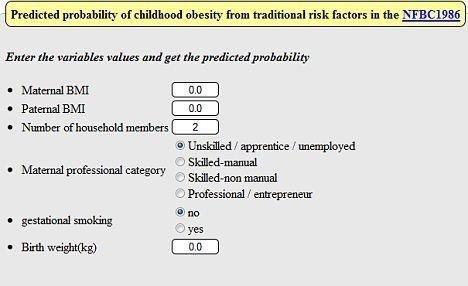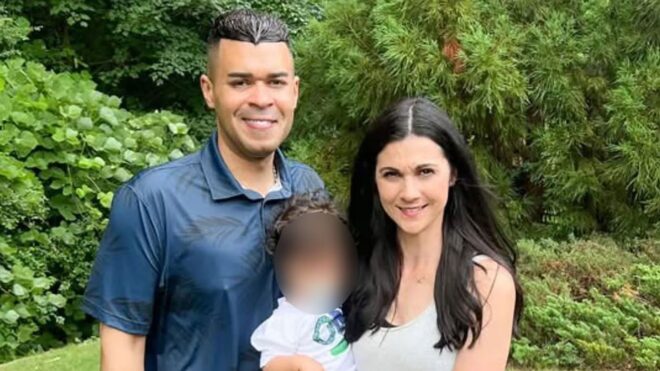The last thing you want to think about when your baby is first born is whether he's going to grow up to be dangerously overweight by the age of 16, right? Well, whether we like it or not, today more and more kids are growing up to be victims of childhood obesity. Luckily for those of us who are concerned parents and want to help prevent this somehow, now there's a new super-easy test to determine if your child is in danger of following in these not-so-healthy footsteps.
Read more ¿Qué más? Kids in daycare are more likely to be overweight
Apparently it only takes six simple questions to calculate the risk of your kid being a victim of the childhood obesity epidemic. The calculator, which is available online thanks to researchers at the Imperial College London, takes into account the BMI of both parents, number of members in the household, what the mother does for work (unskilled labor, professional/entrepreneur, etc), whether mom smoked during her pregnancy and the baby's birth weight.
According to the lead researcher, professor Philippe Froguel, who developed this simple test, the goal is to make parents aware of the dangers because prevention is the best chance we have against this growing epidemic. As Froguel told The Daily Mail "teaching parents about the dangers of over-feeding and bad nutritional habits at a young age would be much more effective [than public prevention campaigns for school-age children.]".
Read more ¿Qué más? BPA's scary link to childhood obesity

I definitely agree with him. I'm certainly going to take this childhood obesity likelihood test (available here) as soon as I can! Looking at my family (most of whom are overweight), I can already tell you that my child will most likely have a big chance of becoming obese, but knowing his or her chances for sure will definitely make me more vigilant when it comes to healthier, more nutritious eating. With Latino kids being more likely to be obese than non-Hispanic whites–as the Office of Minority Health reports–maybe this is a test we should all be taking when we have kids.
Image via Thinkstock




